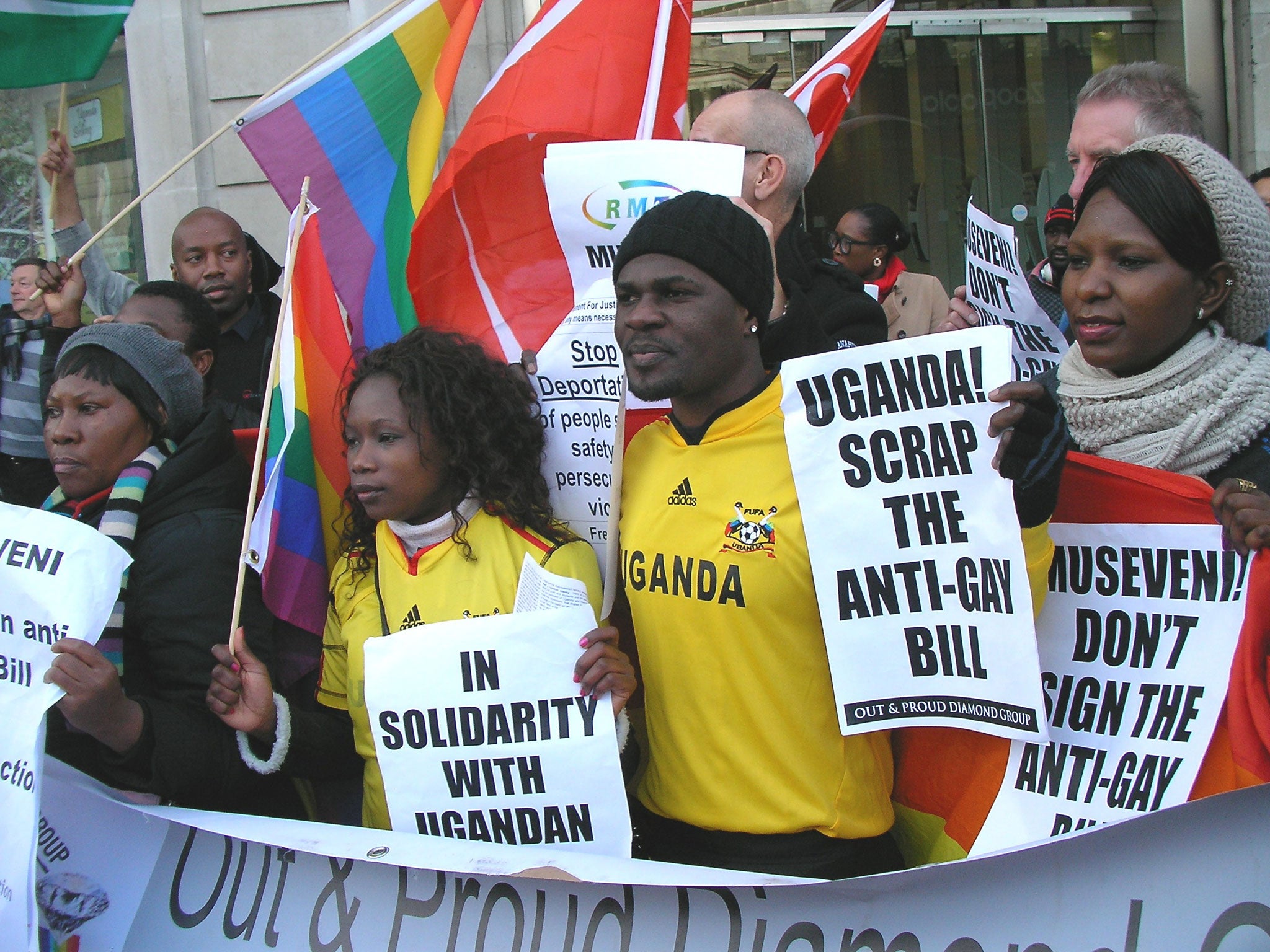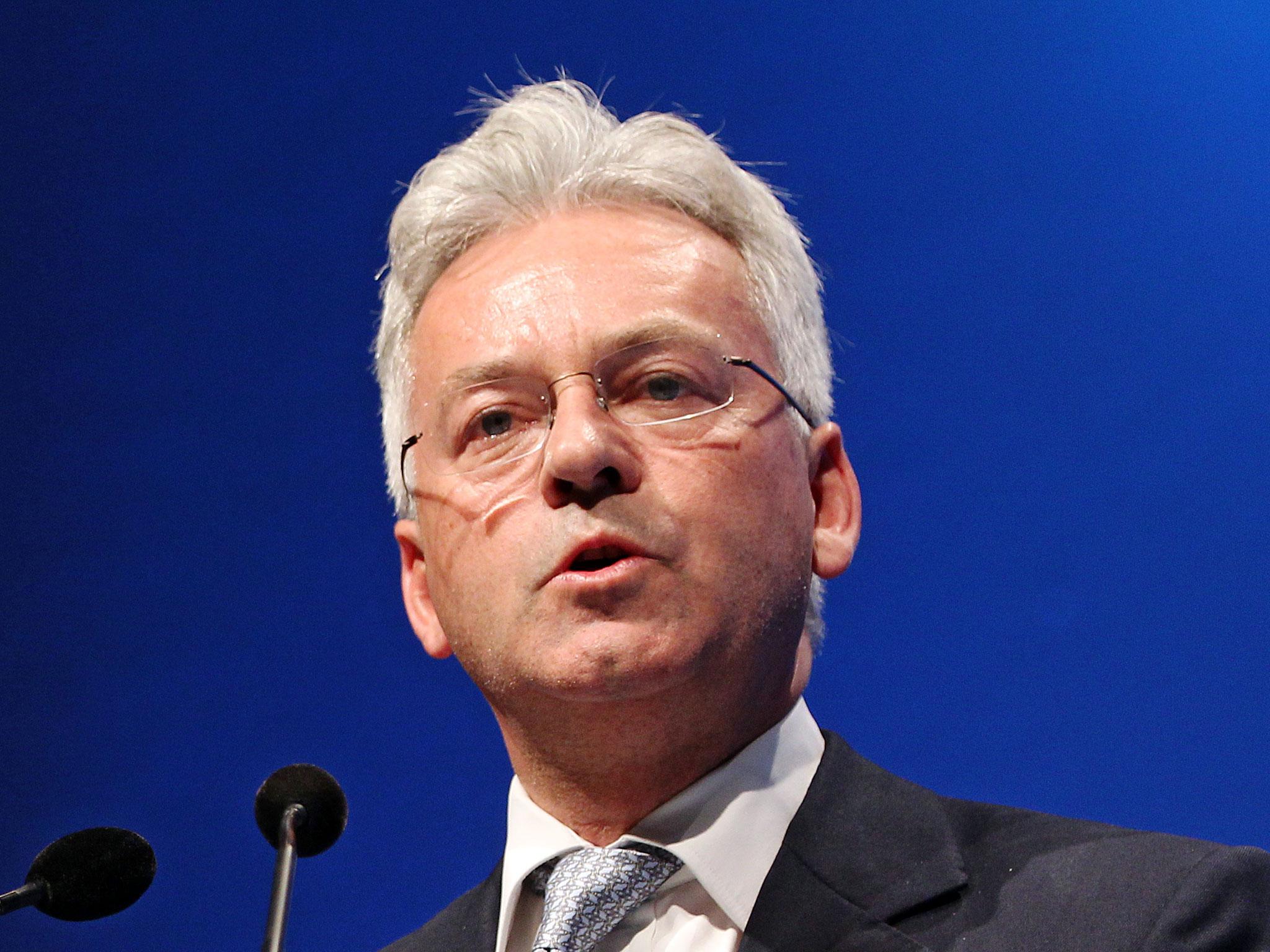Tory Minister Alan Duncan slammed for saying 'primitive cultures' have anti-LGBT problem
LGBT campaigners called Mr Duncan's comments "inappropriate"

A Conservative Minister has claimed that homophobia is worse in “more primitive cultures,” sparking criticism from LGBT campaigners who have called his language “inappropriate” and have accused him of “forgetting that anti-gay laws were a colonial import.”
International Development Minister Alan Duncan, who is the first openly homosexual Conservative MP, used the vocabulary during an interview with The Huffington Post UK in which he was asked about the UK’s international campaign against homophobia.
“Some countries are going backwards [on LBGT rights] and the use of gay hate as a vulgar form of nationalism is contemptible in my view,” he told the website.
Asked whether there are religious motivations behind some of the anti-gay laws in Africa and elsewhere, Mr Duncan replied: “All over the world there is often a collision between gay rights and religious fundamentalism, if you want to call it that. And that collision is difficult to resolve, particularly in more primitive cultures.”
“A lot of the religious zeal is not within the formal Episcopal Church. And of course in a lot of cases it’s also Islamic,” he added.
“But all countries are different, all societies are different. The leadership and influence structures in all societies are different. It’s an issue which has to be advanced in different ways in different countries in a variety of different approaches,” said Mr Duncan.

Mr Duncan's comments have since come under fire from LGBT rights activist Peter Tatchell. Mr Tatchell, who has on two occasions attempted a citizen’s arrest of President Robert Mugabe against alleged torture in Zimbabwe, condemned Mr Duncan’s comments for “demonising” populations.
“"Primitive" is not appropriate language. We mustn’t forget that homophobic attitudes were exported to many of these countries by Britain during the colonial era,” he told The Independent.
“We imposed anti-gay laws upon them. Our missionaries created an ideology of homophobic hatred. Prior to colonialism most of these societies had no anti-gay laws and no serious homophobic prejudice.
“We must always remember that there are liberal progressive people in some of the most homophobic countries. They are fighting against homophobic ideas. We should support them rather than demonising the general population.”
“I don’t think it is right to generalise about other countries no matter how bigoted some sections of the population are. Alan Duncan’s language risks fuelling racist stereotypes. I’m sure he didn’t mean it that way but a self-correction might be a good thing,” he added.
Banners in protest at the Anti-Gay Marriage Law passed in Nigeria are displayed in the crowd during the 2014 African Nations Championship match between South Africa and Nigeria at Cape Town Stadium in January 2014.
Read more: Kenya MP likens homosexuality to terrorism
How Uganda was seduced by anti-gay conservative evangelicals
Frank Mugisha: 'Homophobia is not African. It's imported'
Alistair Stewart, Assistant Director of the The Kaleidoscope Trust, a UK charity which works to uphold the human rights of LGBT people internationally and is headed by Conservative Speaker of the House of Commons John Bercow, said Mr Duncan’s comments were “unfortunate”.
"It’s a shame that a good news story about the UK’s commitment to aid spending and to combatting homophobia has been undermined by the use of such unfortunate language.
"It’s certainly not the vocabulary that we use and terminology like this is generally unhelpful in supporting LGBT people in countries where they face persecution and criminalisation.
"In many ways it’s unfortunate, because it distracts from the good work that the British government has been involved with in supporting LGBT communities where they are threatened," he said.
Join our commenting forum
Join thought-provoking conversations, follow other Independent readers and see their replies
Comments